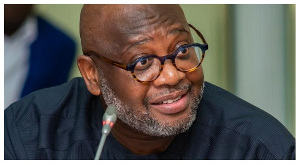Professor Jane Naana Opoku-Agyemang, a former Minister of Education, has underlined the need for Ghana to develop its own education models to respond to its peculiar situation.
She said the nation could not keep experimenting and that even “if we must learn from others, let us look for the best”.
“When we claim some model exists in another country, let us find out what occasioned that model, how it is evaluated and how the bottlenecks are removed, and what researchers are saying about that option", she added.
Prof Opoku-Agyemang made the call at the 7th John Evans Atta Mills commemorative lecture held in Accra on the theme; "Inclusive Education for Sustainable Development".
It was organized by the Ghana Institute of Management and Public Administration (GIMPA) in collaboration with the government and the University of Cape Coast.
She cautioned that reforming the nation’s education without serious evaluation of previous reforms would be wasteful, unproductive, unresponsive and downright destructive.
"We need a long-term development plan for the country. We need to find out how we have run the system in the past and what has created the problems we now seek to rectify."
Prof Opoku-Agyemang called for a paradigm shift that embraced all people on the margins and created an environment that would enable them to operate at a centre.
Education, she said, must point to the future by addressing the real needs of the people – give them the confidence and skills to build a prosperous country.
Education must create the environment that allowed the mind to continuously develop new ways of dealing with existing and emerging issues through critical thinking, creativity and innovation.
She noted that a Pan-African approach would better aid the continent to make progress in the fight against poverty, achieve economic transformation and industrialization.
The former Minister said the late President Atta Mills objective for the country’s education was to ensure quality and equity, founded on fairness and responsible citizenship.
She said under the watch of the late President, there was an increase in textbook ratio from the national average of one textbook for three children to four textbooks for each child, reduction of teacher absenteeism and strengthening of the management of education.
These were all interventions towards quality outcomes and making sure that no child was left behind.
Prof Philip Ebow Bondzi-Simpson, the Rector of GIMPA, described former President Atta Mills as a statesman who contributed immensely to the development of the country.
"Prof Atta Mills was a great person by all standards” he added.
General News of Saturday, 20 July 2019
Source: ghananewsagency.org

















